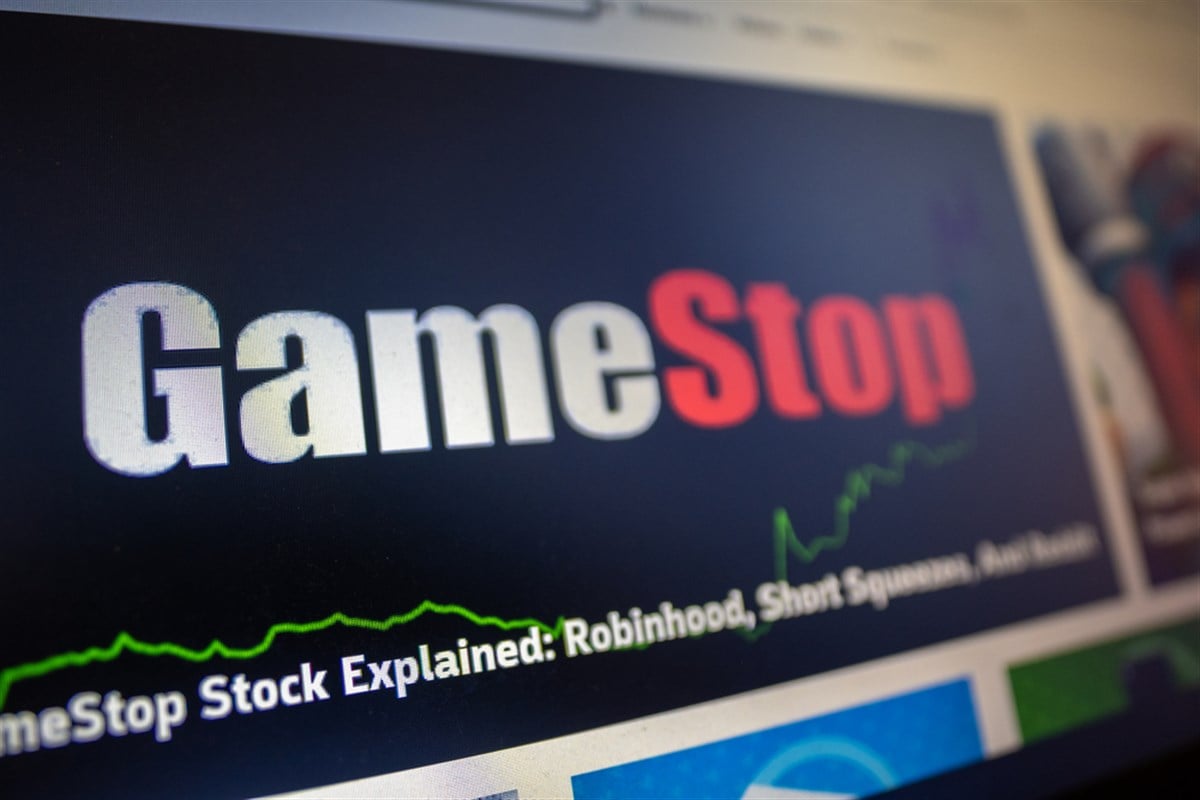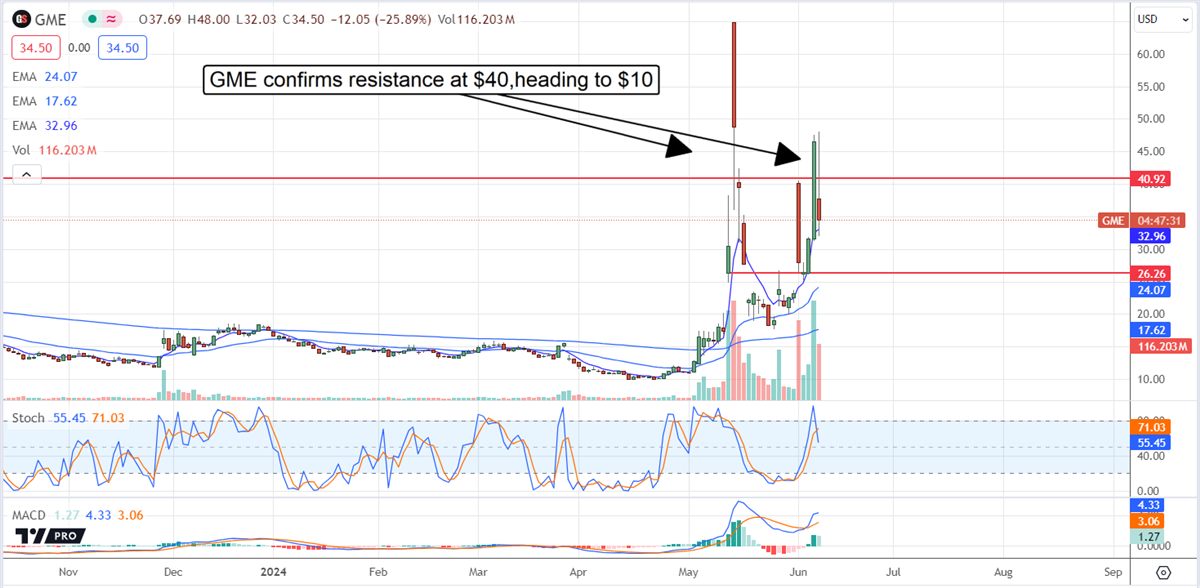
GameStop (NYSE: GME) shares have retested the $10 level once and will do it again because the company is lost. Like Blockbuster before it, its once-hot business lost relevancy and has nowhere to go but out of business, and it looks like the failure is accelerating. The takeaways from the Q1 report are that this company is shedding business fast, losing money, and diluting shareholder value in a way that will make many short-sellers drool.
Among the biggest takeaways is the company's plans for another share sale. The company registered to sell up to 75 million more shares, 65% more than the sale completed last month and will dilute value again. The only good news is that GameStop will be able to shore up its balance sheet and keep itself in business for longer, providing more opportunities for meme-mania to drive volatility and entertainment value.
GameStop Circles the Drain as it Slowly Eats Itself to Death
The capital drain, share sales, and dilution offered by GameStop are no-win situations for investors. The company reported $881.8 million in revenue for the quarter. There is some business to be found, but this is 29% lower than last year and 50% lower than last quarter, suggesting deterioration is accelerating.
The revenue is also weaker than expected, and there is no hope for it to pick up due to the rapidly changing nature of video games from traditional models to cloud-based. Segmentally, all units performed poorly, leading to a 30% decline in the key hardware and software segments. Collectibles sales fell by 20%.
Margin news is mixed. The company improved the gross margin and reduced the year-over-year losses. Still, deleveraging and increased costs cut into the operating margin, leaving losses that were worse than expected on a GAAP and adjusted basis. The adjusted loss of $0.12 is 3300 basis points short of the consensus and is not expected to improve this year.
The balance sheet is still in good shape and even great despite the cash burn. The company sold some marketable securities during the quarter, bolstered the cash balance, and still has no significant debt. The cash balance is just over $1 billion and does not reflect last month's share sales. Adding that to the balance should put it near $2 billion at the end of the current quarter, not counting any new sales.
The new filing allows for 75 million shares, diluting value by another double-digit amount but potentially raising another $1 billion or more in proceeds. The question is whether Mr. Cohen and GameStop can use that money to drive income and value or if it will slowly burn away as this company eats itself to death.
GameStop Market Has Little Conviction
There are some high-conviction participants in the GameStop market, but the market itself has no conviction that matters to investors. The analysts don’t buy, hold, or even sell it, and the institutions avoid it. Short-sellers are still in the mix and likely doubling down, with the price flip-flopping to multi-year highs on meme-mania. This means to investors and traders that volatility is the only thing to count on, and the bias for long-term action is lower.
The price action in GME spiked in early market trading due to an announced live stream by Roaring Kitty, but it was quickly reversed. The early release of the Q1 results and announced share sale results in a 50% contraction from the early highs, leaving the market under pressure. The price action confirms resistance at $40 and suggests a move back to $20 or lower is coming. A move below $20 would be very bearish and likely lead to $10. If this thing hits $10 again, the odds are high it will fall into the single-digit range.














